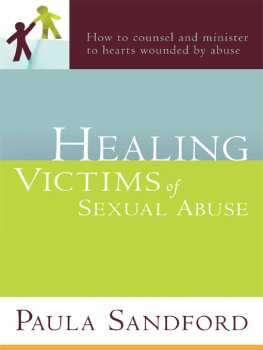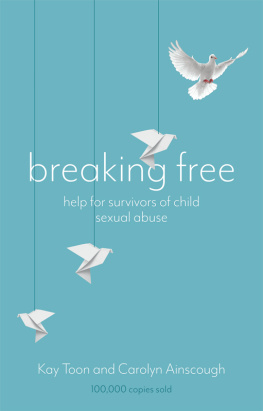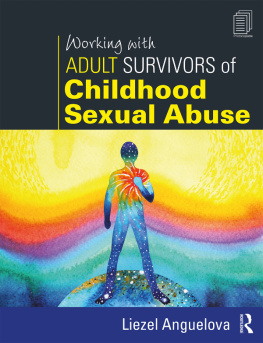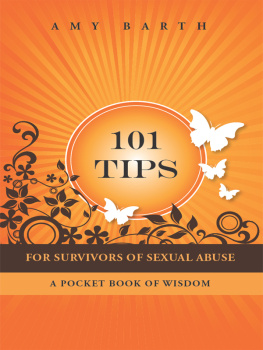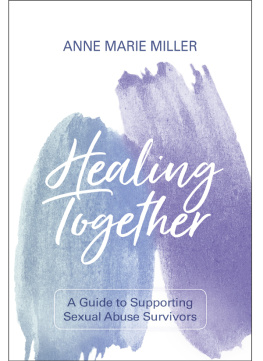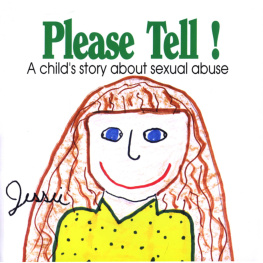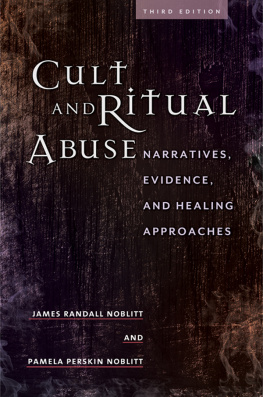A HOUSE DIVIDED
Recovering from Sexual Abuse and Multiplicity
(Written by a Survivor and Her Therapist)
By Catherine Jean Johnson
& Jerry Donaldson

Lakewood, Colorado USA
Philia Press
Lakewood, CO 80226 USA
www.ahousedividedbook.com
A House Divided: Recovering from Sexual Abuse and Multiplicity
ISBN: 978-0-9915240-1-3 (paperback)
978-0-9915240-2-0 (electronic)
Copyright 2013 by Catherine Jean Johnson & Jerry Donaldson
jerryhousedivided@gmail.com
catherinehousedivided@gmail.com
All rights reserved. No part of this book may be reproduced in any form without the written permission from Philia Press and the authors.
Unless otherwise indicated, Scripture taken from The Message. 1993, 1994,1995, 1996, 2000, 2001, 2002. Used by permission of Nav Press Publishing Company.
Cover photo: Jerry Donaldson
Cover design: Sarah DeLong Godfrey
Editorial consultant: Phyllis Klein Ph.D.
Library of Congress Cataloging-in-Publication Data
Library of Congress Control Number 2014903174
This book is dedicated to
all those who have survived
innumerable types of trauma and have
worked diligently to become whole.
Forward
Jerry Donaldson (JD)
Listening to another persons life story has always fascinated me. I believe that is why I enjoy counseling so much. People are usually more real in my office than in any other place. For their own reasons, they have decided to be open, honest and transparent with me, so I am privileged to know who the person actually is, rather than the projected persona most people see. Of course my clients are hesitant at first. They test whether I can be trusted with highly privileged, personal information, but they are usually already determined to get to the bottom of their perceived problems. Whether the struggle involves depression, anxiety, relationships, addiction, or any other unmanageable issue, people find cathartic help in talking out loud about what they are thinking and feeling.
What you are about to read is a ten-year therapeutic autobiography of two very average people. Catherine Jean Johnson (CJ) discovered her own multiple personality disorder (MPD) or what is now called DID, (dissociative identity disorder). I, Jerry Donaldson (JD), facilitated the healing conversation. We both want the reader, whether lay person or professional, to be inspired by our extraordinary encounter.
Our goal is to demythologize the DID (MPD) labels, to normalize for unfamiliar readers what therapy is all about, and to share the benefits of learning to relate to others. I cannot overstate the freedom my counselees give me to be transparent myself. Being who we are (warts and all) with each other enables healing, not only in the counselee but also within the counselor. I have learned more about life and myself through my clients than any of them have learned about themselves in my office.
CJ and I began writing about our ten years experience independently, with very little collaboration. Chapters in this book alternate between the two of us as narrators. She tells her story chronologically, while I write more topically about what I was thinking, feeling and doing to facilitate therapy. Like CJ, I share personal experiences when I sense they might be helpful to the reader.
CJs chapters invite you to empathize with her feelings and thoughts. Attempt to place yourself in her shoes as she progressively discovers her past. As you read my chapters, imagine being a counselortrying to make sense of what had happened to CJ, searching for a way to facilitate her healing and wholeness. You will also notice, even though CJ and I dont contradict each other, that our perspectives differ. After all, our temperaments, personalities, upbringing, and experiences are unique. However, we have found that when we connect on an emotional level, we can enter each others stories.
I also hope our readers can apply the principles, strategies and attitudes expressed in the following chapters to their own lives, even though all do not experience DID (MPD). I am convinced that every human being is comprised of parts and pieces; like CJ, we experience ourselves as the sum of those parts. If we cannot free our parts to know and understand each other, we will suffer conflict within and live a divided, dualistic, incongruent way of life as well.
Reading CJs story can help all of us as we struggle to know, understand, and accept ourselves. If we are willing, as she was, we can grow both intra-personally (relating to our different parts) and inter-personally (relating to others and their parts). If instead we choose to keep the parts of ourselves separated and even isolated, we will find it difficult, if not impossible, to integrate, to be consistent, to be realin short, to be persons of integrity. When our parts conflict with one another, our emotional, physical, spiritual and relational capabilities are severely limited. Physical ailments, psychological impairments, relational conflicts and spiritual hypocrisyall result from failure to know, understand and accept the parts of ourselves.
In some cases, individuals with DID may choose limited integration. Rather than integrate all of the parts (alters), they may reduce the number of alters through therapy, down to two to four, making the internal system more manageable. CJ made the brave choice to totally integrate more than one hundred and fifty parts. This is the story of how that happened. I see in her process a workable model for everyone, in the internal struggles we experience throughout life, and in our external difficulties in relating to others.
Several key themes recur in the telling of our two stories:
- Personal growth is possible only if we take personal responsibility for our feelings, perceptions and behavior. Blaming and fault-finding do not grow us.
- Interpersonal and intra-personal maturity is achieved by searching for the truth. This requires honesty and maintaining integrity (being who we really are).
- The only way we can experience healthpsychologically, emotionally, physically and spirituallyis through self- knowledge , self- understanding , and self- acceptance .
- Relationships likewise flourish by means of knowledge, understanding and acceptance of each other. These three awarenesses enable us to love, which is demonstrated by grace and mercy.
Finally, trust and trustworthiness can be established only by incorporating these truths into our lives. Without trust, we will live with fear, self-protection and defensiveness, hiding our pain and causing more conflict.
Both CJ and I purposely have left out specific details about the abuse she experienced. However, we do disclose certain memories which had to be held by the alters, so readers can know and understand their feelings. The subject of sexual and Satanic ritualistic abuse is extremely dark and painful, and only a courageous empathizer can truly understand CJs experience. She and I suspect that you will be conflicted, just as we were, but we hope the stories within the larger story will ultimately reach the caring, compassionate, loving side of each reader.
Catherine Jean Johnson (CJ)
From the time I was diagnosed with MPD (Multiple Personality Disorder), now known as Dissociative Identity Disorder (DID), I have needed this book. While I was working through the therapy process, I searched high and low for resources addressing the issue of multiple personalities from the perspective of individuals who actually had been given that diagnosis. I found very little that was helpful or informative. That is my main reason for writing this book. Of course, writing my story has also been therapeutic for me, as I look back at the journey about to be completed in my life.


